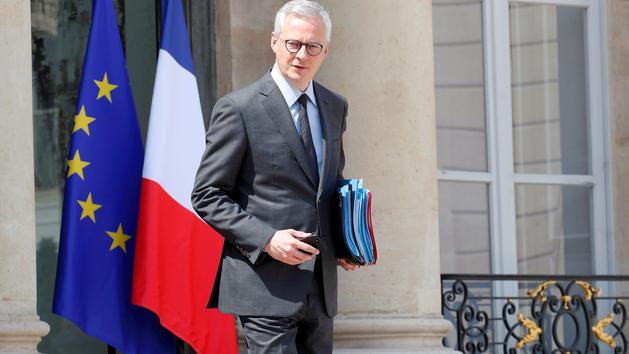500 million euros to support companies' cash flow, ravaged by the economic crisis. This envelope, in the form of repayable advances, up to 800,000 euros, and loans at subsidized rates, beyond 800,000 euros (loaned at fixed rate), will complement the loan scheme guaranteed by the State (PGE) as well as that of regional “ rebound loans ” and solidarity funds dedicated to very small businesses and the self-employed.
Read also: How to determine if a business is "viable" or not?
This new state aid system is managed by the General Directorate of Enterprise (DGE) within the Ministry of Economy and Finance. "Strategic companies with 50 to 250 employees are the preferred target of this discretionary device, " said the Ministry of the Economy in a statement released this week.
Help companies failed by banks
Since March 25, PGEs have placed companies on a drip, strengthening their cash flow during the collapse of activity during a period of containment and those which are now experiencing a difficult recovery. Because France is currently only turning 80% of its pre-crisis level, according to the latest data from INSEE, and many strategic sectors such as aeronautics, cars and tourism are thus faced to a lasting reduction in their activity. Some 100 billion euros in state guaranteed loans (PGE) have been granted to 500,000 companies and VSEs represent 90% of the total allocated, said last month the director general of the public investment bank (BPI) , Nicolas Dufourcq.
But if the State wishes to protect companies from bankruptcies in the face of the Covid-19 pandemic, requests for EMPs for companies whose solvency is deemed less solid by the Banque de France, often already very fragile before the crisis, are meticulously studied on a case by case basis. Solicited from all sides, some banks have also been very cautious about the granting of EMPs and some companies are still waiting to get the precious sesame. Because if the State guarantees 90% of the EMP, the rest of the financial risk weighs on the banks in the event of default.
Thus, the new Bercy aid system intends to relieve the finances of companies that have been rejected by the banks and which have also not found a solution with the credit mediation services, managed by the Banque de France. However, this injection of public money will only concern " strategic companies with 50 to 250 employees " , endowed with " real prospects for recovery ". Companies which also have an important role within their local employment pool, with recognized expertise or with " a critical position in a value chain ". This repayable advance scheme for SMEs may also be obtained by companies for which the contribution from the EMP has been insufficient.
Two companies located in the department of Aisne are the first to have benefited from this aid, according to the press release, and around thirty files are currently being analyzed by the departmental committees examining the problems of financing of companies. The ministry will ultimately have to validate the granting of funds. If Bercy intends to remain selective in providing public money to businesses, because it would be "a big mistake " to support non-viable businesses, said Bruno Le Maire in particular last Tuesday during a videoconference organized by the European Council for international relations (ECFR), the State does not rule out suffering some losses with this new device.









